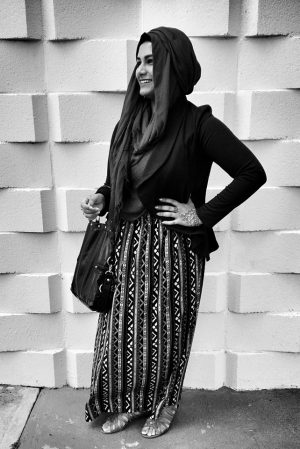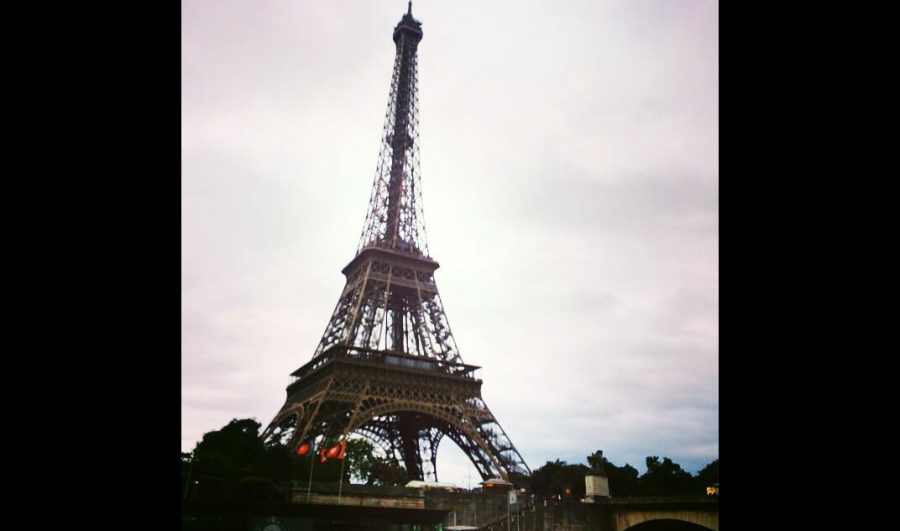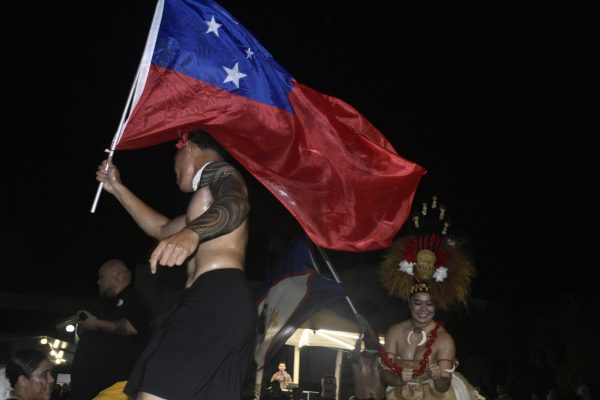Burkini in France: Are we monitoring women’s clothing or the following the law?
Photo courtesy of Desiree Depondicchello
The fine line between Islamophobia and national security.
October 12, 2016
On August 23, a woman on a beach in Nice, France, was forced by the police to remove her headscarf and fined for the incident by officers. The police said that her outfit was not respectful in regards of good morals and secularism. Similar events in Corsica and Cannes have occurred, where women were targeted by authorities for wearing burkinis or headscarfs while at the beach. Though this may seem to be in light of recent terrorist attacks in France, there is more background to this situation.
The ban on burkinis was introduced by the mayor of Cannes, David Lisnard, August 13. The mayor’s prohibition was, “Beachwear ostentatiously showing a religious affiliation while France and places of religious significance are the target of terror attacks.”
The ruling itself was “Access to beaches and for swimming is banned to anyone who does not have (swimwear) which respect good customs and secularism.”
The burkini is a stylized wetsuit topped off with an attached headwrap, designed by Australian fashion designer Aheda Zanetti. Though the suit’s name sounds like it would be exclusively for Muslim women, in an interview in september with the Huffington Post, Zanetti said how 40 percent of her customers are Jewish women in Israel, and the burkinis have increased in popularity in Asian countries due to the desirable pale skin.
Recent events such as the November 2015 terrorists attacks in Paris that killed 130 people, and the July truck attack in Nice that killed 87, have directed the media to put France under a microscope in regards to the laws regarding religious expression. In 2004, France issued a law that banned burqas, niqabs, head scarves and other various religious symbols from schools, such as cross necklaces or kippahs.

“The people that are actual extremists, those are the people you should be worried about.” Mahera Ahmed, a senior psychology major at Chaminade, who is also a practicing Muslim said,” Not what people are wearing… It’s men telling women how they should dress…I think it’s a sexist thing that they’re tackling it in a way that is seems like it has to do with Islam. Because honestly, the burkini ban, that’s ridiculous.
“In the Qur’an, it’s highly recommended that women cover up, so that we are valued for who we are as people,” she said. “It is also written that you cannot be forced. You cannot force a woman to behave or do anything that she does not want to. … The hijab was not just about covering hair or something like that, it’s so much more than that. But people don’t seem to realize it. It’s about aiming to be the best person you can be.”
French exchange student, Aubane Becker, currently attending Chaminade as a business major said that, “In France, we are a laïque country, (a secular democratic republic),” continuing how the policy is part of the French constitution.
Becker explained further that though Muslims are targeted because of the recent attacks, all religions should be equally targeted. From her experience, she goes on to say that from what she has observed, this ban is not targeting Islam but rather targeting women’s clothes, which is entirely inappropriate in her views.
Though the burkini ban spurred much controversy, the highest administrative court, the French Council of State overturned the ban, saying “mayors do not have the right to ban burkinis.”
Though some may believe that these policies and laws are a bit unorthodox and against free speech, Mélanie Vaillant, who was raised in France and is a student at Montpellier School of Business in France, explains the culture and sentiments pushing these laws.
“We see the burka and the burkini as something that the woman has to hide herself,” she said. “As a french woman you have the right to wear what you want, to be respected for what you are and don’t hide yourself behind all that.”
Vaillant continues to emphasize that the, burqa in particular, in France is seen more as an oppressive object, aimed towards shaming women rather than it being a personal choice. It is perceived that younger women are brainwashed into an repressive misogynistic agenda.
“I don’t think it’s ok for someone to target a woman on her clothes. Because what’s the point? The girl will feel humiliated in front of everybody. Media and politicians are definitely targeting Muslim people, so this is why they make a huge deal about Muslims, burka and burkini, they can scare a lot of people. And people are now becoming more and more Islamophobic, and for the wrong reasons. We stigmatize this religion.”














